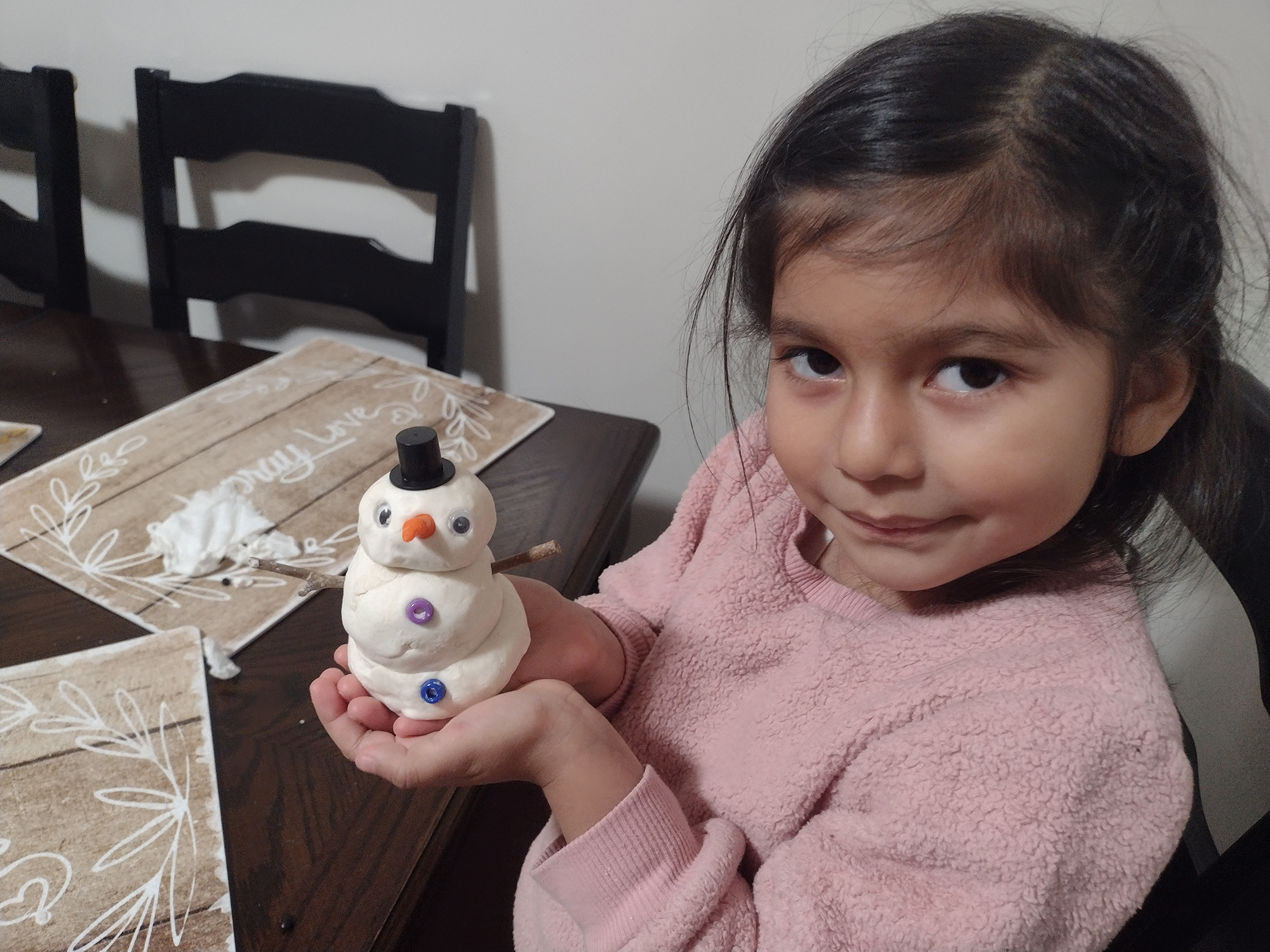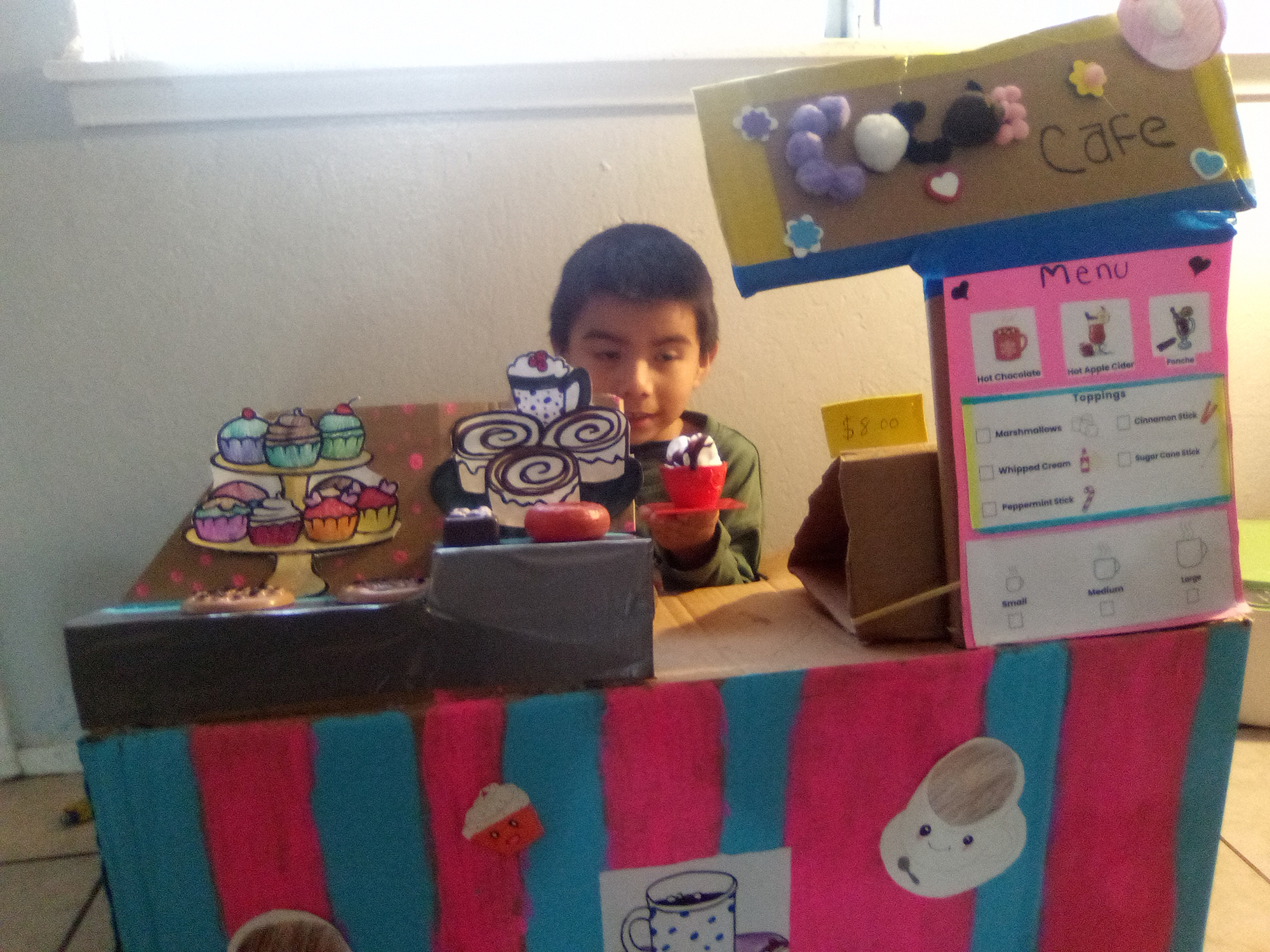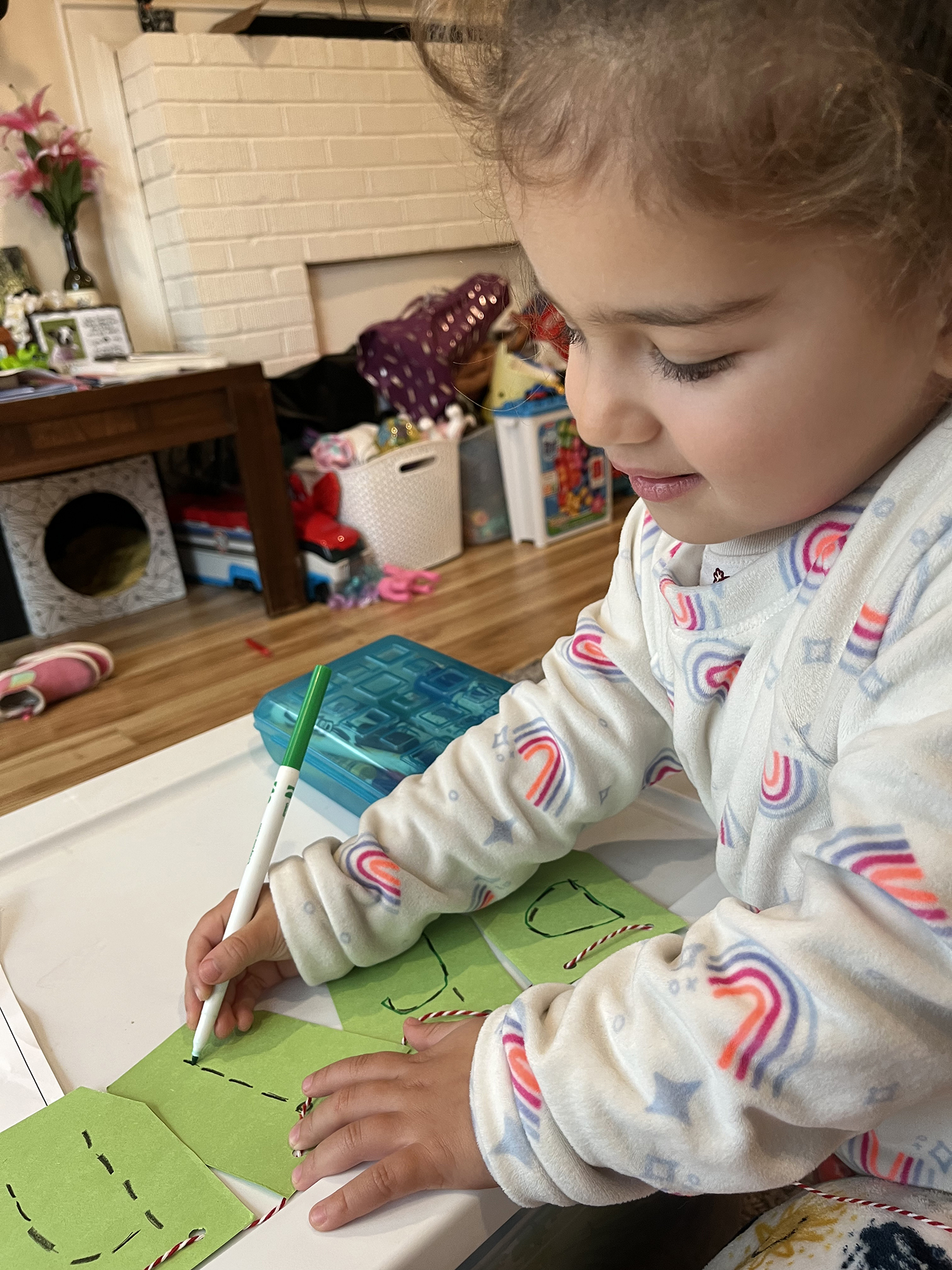Two years ago, Claudia Diaz was worried that her son Geraldo wouldn't be ready for kindergarten. He didn't seem to be developing vocabulary skills as quickly as she expected, so the East Palo Alto mom decided to enroll in Learning Home Volunteers, a program aimed at training parents how to use daily play activities to teach their children vocabulary, numbers, problem solving and other kindergarten-ready skills.
Since then, Geraldo, now 5 and just a year away from entering school, has learned to finish entire books by himself and is even teaching his brother how to read.
"This program has been fantastic," Diaz said through a translator. She's learned how to turn everyday moments, such as cooking, into learning opportunities for her son. "Whenever he gets bored playing by himself, he looks for me to start doing an activity with him. I try to take advantage of anything I'm doing to teach him."
He loves reading, writing the alphabet, teaching his family words in English and counting out teaspoons and cups as Diaz cooks, she explained.
"He's always counting," Diaz said. "Most of all, he enjoys (learning). Everyday, he asks, 'What's next? What's next?'"
Diaz and Geraldo are among the 60 children and parents enrolled in the nonprofit program, which serves residents in San Mateo County. All the families in the program are low-income, and about 94% are ethnic minorities. A $10,000 grant from the Palo Alto Weekly Holiday Fund this past year, supported Learning Home Volunteers' capacity to double its enrollment thanks to referrals from the Ravenswood Family Health Network in East Palo Alto, which serves the same demographics.
Victoria Shoemaker, executive director of the San Carlos-based Learning Home Volunteers, said the nonprofit's mission is to ensure that all children ages 2 to 5 in the community, regardless of their economic circumstances, get an equal start at school. There are 10,000 low-income children in this age group in San Mateo County, according to the 2020 Census. Of those, only a small portion about are attending preschool or are being served, said Shoemaker, who helped launch the program just as the pandemic struck.
Kindergarten readiness is the No. 1 indicator of future academic performance, yet the overwhelming majority of low-income children enter school with skills two years behind those of children from different economic circumstances, she said. Most of these children never catch up, she added.
"There's nothing wrong with the children. There's nothing wrong with the families," Shoemaker said. "These (parents) just don't have the resources to provide their children with books, educational experiences, materials and toys. Most are unable to send their children to preschool. We started Learning Home Volunteers to correct this educational disparity."
Through the program, volunteers distribute activity boxes stocked with supplies for multiple projects to families' homes each month and provide ideas on how to use those projects to support their child's learning. The December activity box, for example, included supplies for 15 winter-themed activities, such as materials to make a scarf, a book about mittens and ideas on how to create a pretend holiday cafe that serves cider and hot chocolate.
The key to the program's success, Shoemaker said, are the children's parents — their drive for their children to succeed. Each activity is taught in the home by the children's parents.
"The projects themselves are set up to be maybe 15 minutes apiece, but the learning goes on longer than that," she said. "These techniques we've taught — counting themes, identifying colors, looking for shapes — are something the parents can do with their children literally everywhere."
A trip to the grocery store can now be an extended learning activity, she said. Parents can give their children a shopping list for soup and have them look for ingredients that start with a "c," or vegetables that are the color orange.
"This allows them to continue the learning all the way through," she said. "It's a lot of fun. The parents enjoy it. And you know, part of the secret weapon is that the kids like it."
Diaz said taking a more active role in her son's learning has been empowering.
"Right now, he's into books because he's been able to learn to write all the letters and numbers," she said. "Everyday, he wants to discover something new."
Whether it's cooking, board games or playing with Play-Doh, each monthly activity box comes with a video that shows ideas on how to use the materials, Shoemaker explained. Families also upload activity photos and ideas on a private social network to share with others in the program for inspiration. The staff also can use the photos to track children's progress.
Shoemaker said the program probably wouldn't operate in this format if it weren't for the pandemic.
"I know that this sounds funny, but COVID was the best thing that ever happened to us because the parents had to take the reins of their child's learning, " she said. "It is the parents now, rather than volunteers stopping by once a week, that are delivering the work that's being done with their kids. We would have gotten there eventually; (the pandemic shutdown) just made it possible to happen right away."
The annual Weekly Holiday Fund charitable giving drive is in full swing, with a goal of raising $600,000 for local nonprofits serving children, families and individuals in need. Read more about the Holiday Fund at PaloAltoOnline.com/holiday_fund or go to embarcaderomediafoundation.org/holiday-fund/palo-alto to donate.





Comments